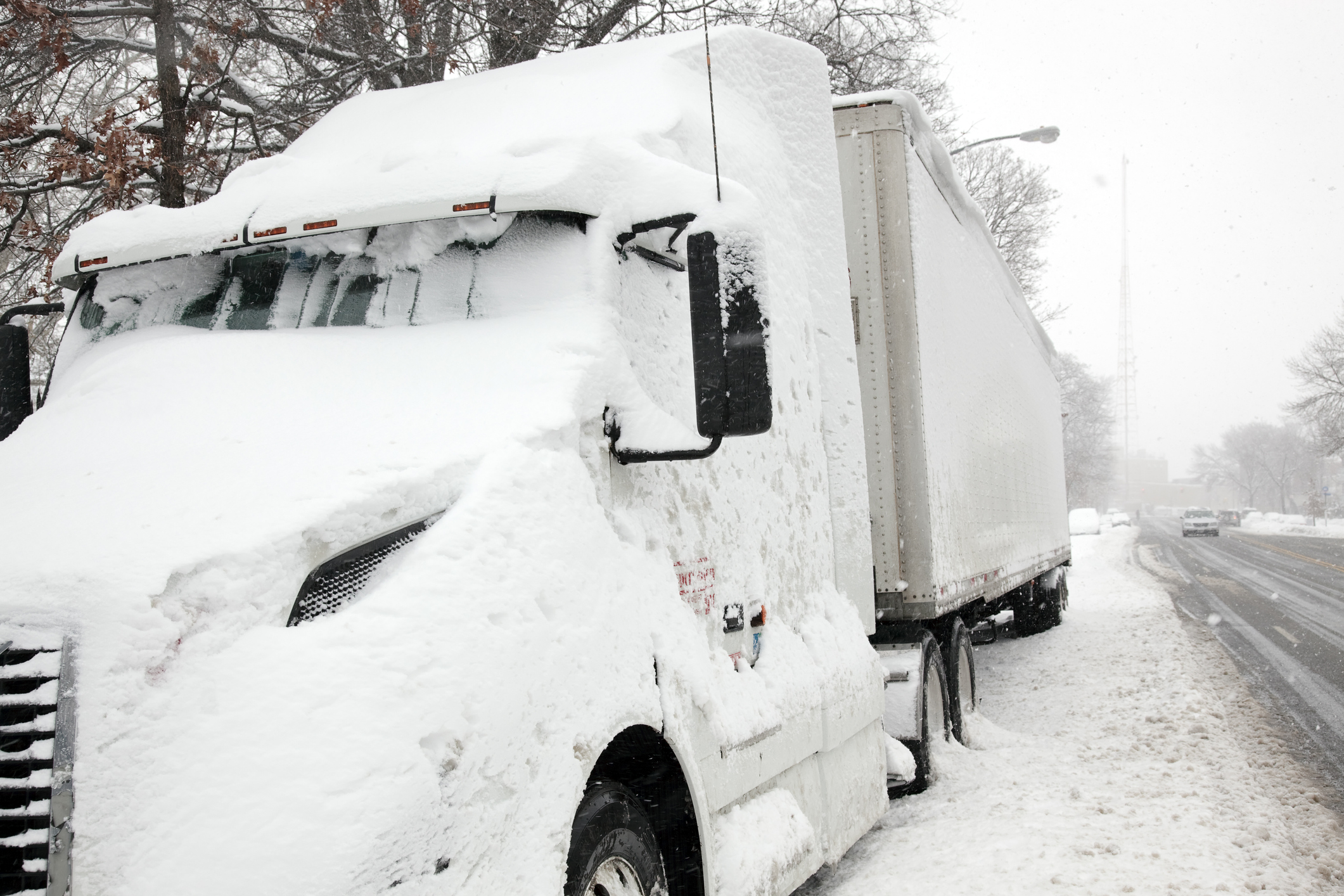Preparing Your Fleet Vehicles for Winter

With winter fast approaching, there’s no time like the present to ensure your fleet vehicles are weather-ready. Winter conditions such as snow, ice, freezing rain, and cold temperatures can be especially harsh on vehicles, affecting productivity, fuel efficiency, and vehicle performance.
Being proactive by preparing your vehicles for the challenges that winter brings, will keep your vehicles productive, your drivers safe, and your customers serviced and satisfied. Here are some winter preparation tips to ensure you are up to the challenge in even the harshest conditions.
Choose the Right Fuel
To keep operations running smoothly in colder temperatures, you must have the right fuel powering your vehicles. Having the right diesel in the tank can improve vehicle performance and reduce downtime, increasing productivity and lowering maintenance costs.
Many fuel providers offer winterized diesel containing additives that prevent gelling and keep vehicles performing optimally in colder temperatures. Winterized diesel is a combination of #1 diesel and #2 diesel and is used when it is too cold to use only #2 diesel.
Talking with your fuel provider about which diesel is best for your vehicles and for the areas of the country where you operate is always a good step to take to ensure you’re getting the most from your fuel and vehicles over the winter months.
Keep Tanks Full
During winter, vehicle tanks should be kept as full as possible. Keeping tanks full minimizes the empty space in the tank, which reduces the chances of condensation forming — which is the last thing you want.
Condensation can cause many different fuel system problems, such as poor operation, uneven idle, and premature injector wear. And if condensation freezes, watch out. It can clog the fuel lines or fuel filter, stopping fuel from reaching the combustion chamber and leaving your driver stranded on the side of the road.
Don’t Forget Fuel Additives
Fuel additives should always be included in your winter maintenance checklist. Additives are specifically formulated to address the challenges that cold weather brings, including preventing gelling and improving overall fuel stability.
Diesel fuel contains paraffin wax and when temperatures drop below freezing, the paraffin starts to come together and solidify. If enough paraffin clumps come together, it can block intake ports, fuel filters, fuel lines, and injectors.
Monitor Fuel Quality
Regularly testing and monitoring the quality of your fleet's fuel supply is crucial to safety and productivity. This involves checking for water content, sediment, and other impurities that can compromise vehicle performance.
Periodic fuel analysis and proactive and scheduled maintenance of tanks ensure that you catch potential problems before they escalate, allowing you to take preventive measures and keep your vehicles and operations running smoothly throughout the winter months.
Educate Drivers
Knowledgeable drivers are your front-line defense against winter weather challenges. To that end, drivers must ensure that all systems are “Go” before hitting the road. This includes:
- Checking that the defroster and heater are working properly
- Checking that all lights, wipers, and the wiper motor are functioning
- Topping off washer fluid
- Checking the windshield for cracks
- Checking tire pressure and tread
- Testing the battery and cleaning the connections
- Idling the vehicle for a few minutes to let the engine warm up
- Having tire chains onboard and an emergency kit
Drivers should also be educated on properly handling their vehicles in winter conditions. Packed snow can cause wheels to spin, so drivers should steer clear of tire tracks from other vehicles. Additionally, drivers should avoid unnecessary lane changes, and be extra cautious on bridges, overpasses, and shady areas, where ice tends to form first.
Stay on Top of Maintenance
Routine maintenance is the backbone of a safe and reliable fleet, especially during winter. Staying on top of maintenance and paying particular attention to components susceptible to cold weather damage such as fuel filters and fuel lines, will help prevent unexpected downtime and save you money on maintenance costs.
Winter weather will be here before you know it. Is your fleet ready?